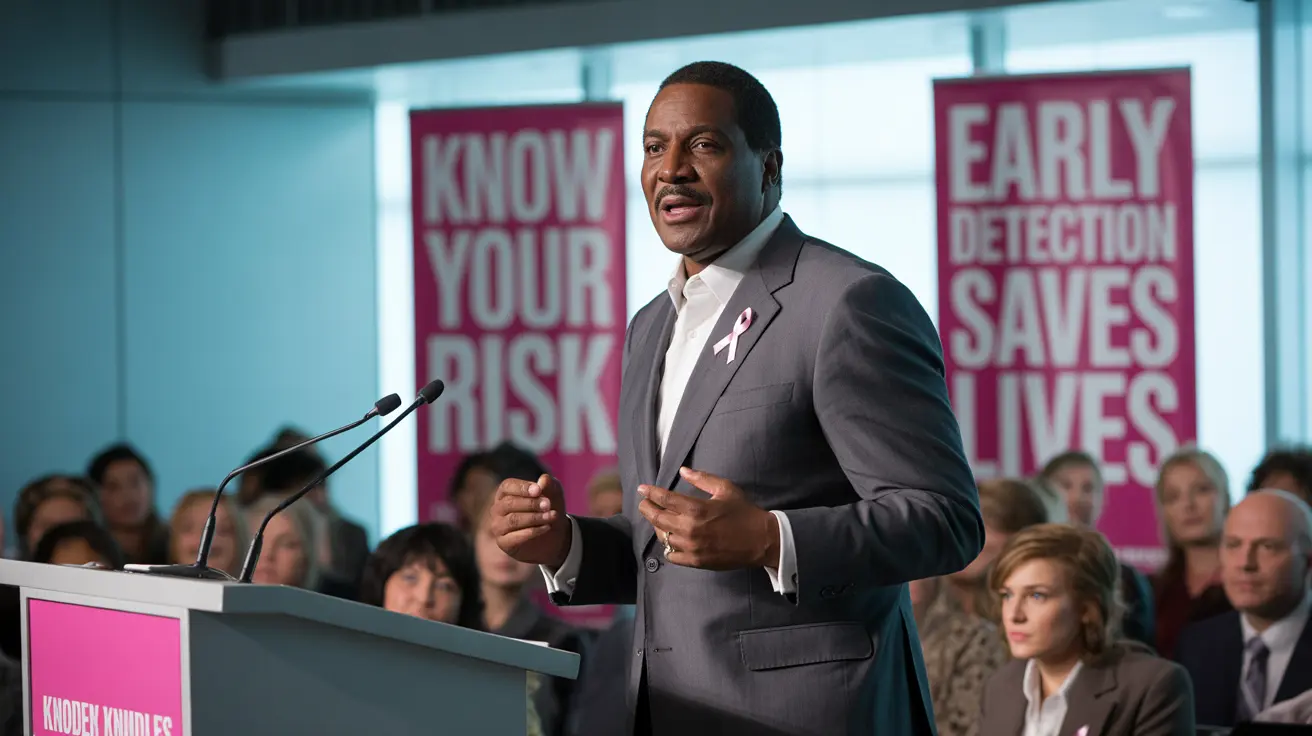Mathew Knowles, best known as Beyoncé's father and former manager, continues to be a powerful voice in both the entertainment industry and male breast cancer awareness. After his diagnosis in 2019, Knowles has transformed his personal health journey into a mission to educate others about this rare but serious condition affecting men.
His story highlights the critical importance of early detection and genetic testing in male breast cancer, while challenging the misconception that breast cancer only affects women. Today, Knowles remains active in both his professional career and advocacy work.
Early Detection and Diagnosis Journey
In 2019, Mathew Knowles noticed small drops of blood on his white shirts, a seemingly minor symptom that proved to be life-changing. This unusual sign, combined with his observation of small dots of blood on his bedsheets, prompted him to seek medical attention - a decision that potentially saved his life.
The diagnosis revealed stage 1A breast cancer, catching the disease at an early and treatable stage. Knowles' quick response to these symptoms demonstrates the importance of men paying attention to unusual changes in their breast tissue.
Treatment and Recovery Process
Following his diagnosis, Knowles underwent a mastectomy in July 2019. The procedure involved removing the affected breast tissue, which is the standard approach for male breast cancer treatment. He also underwent genetic testing, which revealed he carried the BRCA2 gene mutation, known to increase the risk of breast cancer.
- Initial mastectomy surgery
- Ongoing monitoring and follow-up care
- Regular genetic counseling
- Lifestyle modifications to support recovery
Advocacy and Awareness Impact
Since his recovery, Mathew Knowles has become a prominent advocate for male breast cancer awareness. He regularly shares his story through various platforms, emphasizing several key messages:
- The importance of early detection in men
- The role of genetic testing in identifying cancer risk
- Breaking the stigma surrounding male breast cancer
- Encouraging men to perform regular self-examinations
Understanding Male Breast Cancer Risk Factors
Through Knowles' advocacy work, several important risk factors for male breast cancer have been highlighted:
- Genetic mutations (particularly BRCA1 and BRCA2)
- Family history of breast cancer
- Age (most common in men over 60)
- Obesity
- Previous radiation exposure
- High levels of estrogen
Frequently Asked Questions
Is Beyoncé's father, Mathew Knowles, still alive and active today?
Yes, Mathew Knowles is very much alive and active. He continues his work in the entertainment industry while serving as a prominent advocate for male breast cancer awareness and genetic testing.
What symptoms did Mathew Knowles notice that led to his male breast cancer diagnosis?
Mathew Knowles noticed drops of blood on his white shirts and bed sheets, which prompted him to seek medical attention. These symptoms led to his stage 1A breast cancer diagnosis in 2019.
How is male breast cancer treated, and what was Mathew Knowles' treatment approach?
Mathew Knowles underwent a mastectomy to remove the affected breast tissue. His treatment plan included surgery, ongoing monitoring, and genetic counseling after discovering he carried the BRCA2 gene mutation.
Why is awareness of male breast cancer important, and what risks increase a man's chance of developing it?
Male breast cancer awareness is crucial because early detection significantly improves survival rates. Risk factors include genetic mutations, family history, age, obesity, and elevated estrogen levels. The condition is often overlooked due to the misconception that breast cancer only affects women.
How does Mathew Knowles advocate for breast cancer awareness and genetic testing in men?
Mathew Knowles actively shares his story through public speaking engagements, media appearances, and awareness campaigns. He emphasizes the importance of genetic testing, early detection, and breaking the stigma surrounding male breast cancer.
Through his openness about his diagnosis and recovery, Mathew Knowles continues to make a significant impact in raising awareness about male breast cancer, proving that survival and advocacy can go hand in hand in the fight against this disease.




